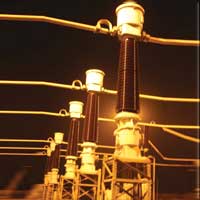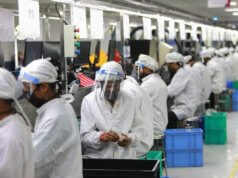Reiterating that the measures being initiated by the Centre at present in the guise of further reforming the power sector will lead to escalation of electricity tariff and more corruption, the National Coordination Committee of Electricity Employees and Engineers has threatened to use the coming general elections for ventilating its grievances and also exposing the stand of various political parties on the issue.
In a recently released statement, the umbrella body of all major federations of power sector employees and engineers in the country said the enactment and implementation of the Electricity Act, 2003, which caused the winding up of State Electricity Boards and subsequent splitting into generation, distribution and transmission companies, did not result in greater private sector participation in the sector, significant private investment, exemplary growth in generation capacity and fall in tariff as was expected. Instead, state owned electricity utilities and energy resources got transferred to private parties at throwaway prices, tariffs sky rocketed and rampant corruption followed.
Highlighting the grim power scenario in the country, the NCCOEEE said that private investors were to be blamed for the more than 30,000 MW generation capacity that remains unutilized. It stressed on the need to review and amend the Electricity Act, 2003, in order to integrate the functioning of the power sector under state control with resumption of SEBs.
|
Tariff Revision Status FY 2013-14
|
|
| State | % increase in Tariff |
| Andhra Pradesh | 23.00% |
| Arunachal Pradesh | 5.64% |
| Assam | 2.40% |
| Bihar | 6.90% |
| Chhattisgarh | 0.00% |
| Delhi | 5.00% |
| Gujarat | DGVCL-7.92;MGVCL-7.68; PGVCL-6.42; UGVCL-5.83; TPL-A-5.91; TPL-S-6.34; TEL – (-7.33); MUPL – (-4.53); KPT-21.41 |
| Haryana | 13% |
| J & K | 8.5% |
| JERC – Goa &UTs | Goa,Chandigarh, A&N, Lakshadweep – Nil; D & NH – 4.21%, D & D – 10.15%, Puducherry – 26.48% |
| Himachal Pradesh | 13.3% |
| Kerala | 7.90% |
| Madhya Pradesh | 0.77% |
| Meghalaya | 7% |
| Nagaland | 7.00% |
| Orissa | 2.40% |
| Punjab | 9.06% |
| Rajasthan | JVVNL – 10.04; AVVNL – 12.33%; JdVVNL – 20.34%; |
| Tripura | 21% |
| Uttarakhand | 5.21% |
| Uttar Pradesh | DVVNL – 7.43%; MVVNL – 4.60%; PVVNL – 3.40%; PuVVNL – 8.04%; KESCo – 3.35% |
The government’s shift towards further segregating distribution into supply and wire business was aimed at benefiting private companies and the creamy layer of consumers, the NCCOEEE said, adding the move would adversely impact the tariff for low end consumers.
Meanwhile, the All India Power Engineers Federation has criticized the decision of the Ministry of Petroleum and Natural Gas to hike natural gas prices from $ 4.2 per mmBtu to $ 8.4 per mmBtu from April 1st claiming the increase would make the power generated by gas fired plants unaffordable.
Gas fired power plants make up about a quarter of the installed generation capacity in the country.
Appealing to the Prime Minister to intervene in the matter, the representative body of degree holding engineers in the government power sector said the increase in natural gas prices would lead to rise in tariff from the present Rs. 4 – Rs. 4.50 per unit to Rs. 6.50 – Rs. 7.50 per unit for power generated by gas fired plants.











